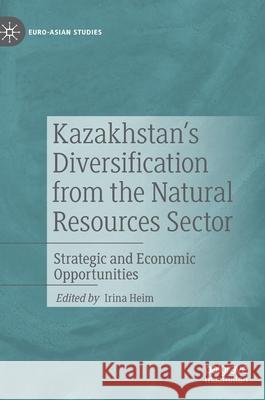Kazakhstan's Diversification from the Natural Resources Sector: Strategic and Economic Opportunities » książka
topmenu
Kazakhstan's Diversification from the Natural Resources Sector: Strategic and Economic Opportunities
ISBN-13: 9783030373887 / Angielski / Twarda / 2020 / 258 str.
Kategorie:
Kategorie BISAC:
Wydawca:
Palgrave MacMillan
Seria wydawnicza:
Język:
Angielski
ISBN-13:
9783030373887
Rok wydania:
2020
Wydanie:
2020
Numer serii:
000201810
Ilość stron:
258
Waga:
0.53 kg
Wymiary:
21.01 x 14.81 x 2.06
Oprawa:
Twarda
Wolumenów:
01
Dodatkowe informacje:
Wydanie ilustrowane











